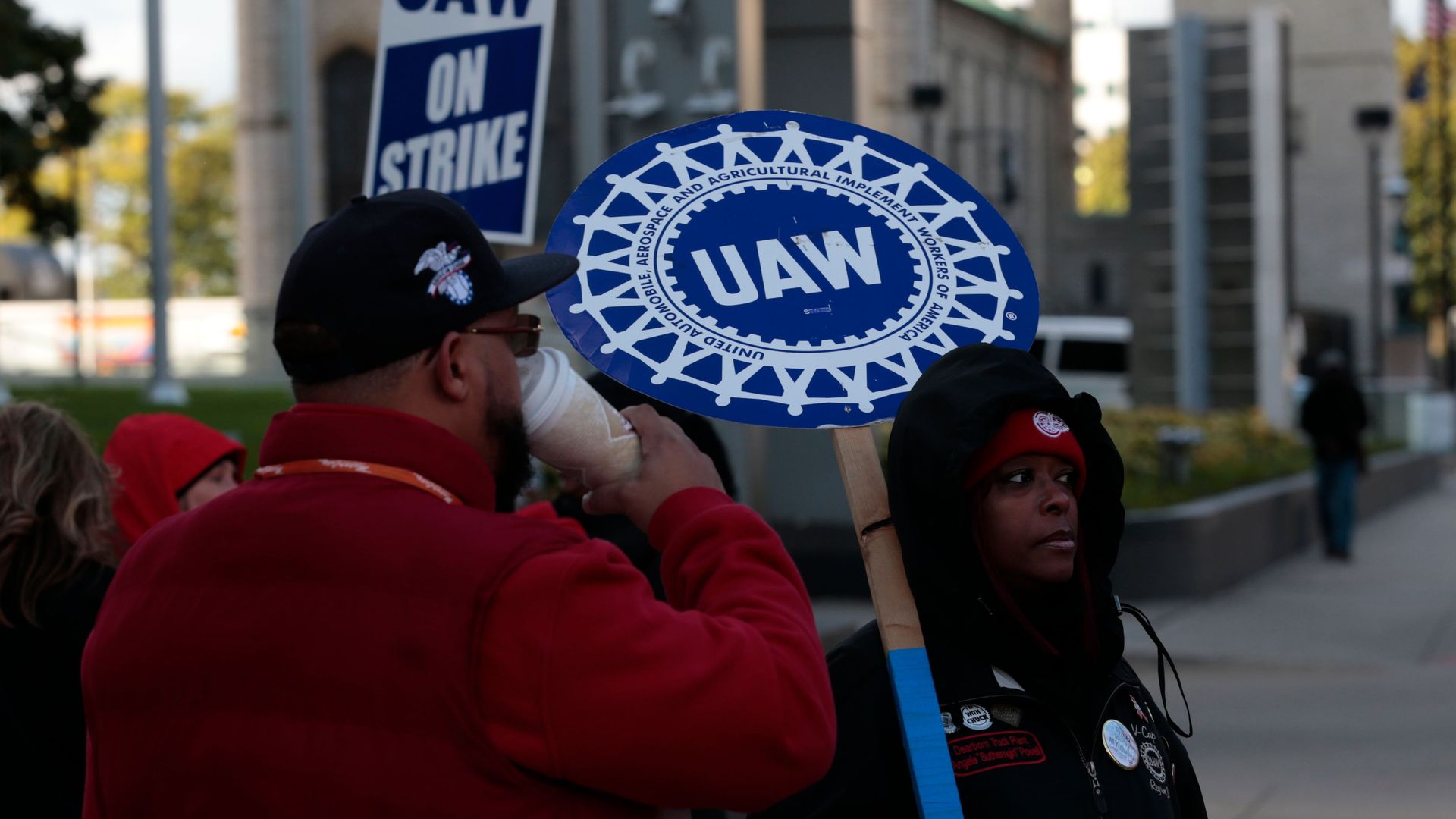Health benefits won't change for GM workers
Add Axios as your preferred source to
see more of our stories on Google.

UAW workers have demanded health care costs stay the same. Photo: Jeff Kowalsky/AFP via Getty Images
The tentative deal between General Motors and the United Auto Workers includes an agreement to keep the same health care plans "with no additional costs to members," according to a summary of the deal.
Why it matters: Most employer health plans are getting more expensive and less comprehensive. The UAW is ensuring GM's benefits stay comprehensive for workers — a move that competing automakers Ford and Fiat Chrysler likely will adopt in their negotiations — but the coverage itself remains pricey and chips away at funds that could go toward wages.
Details: GM wanted unionized workers to pay for 15% of their health care costs through premiums and deductibles, up from 3%, and it wanted to allow its pharmacy benefit manager, CVS Health, to exclude certain medications from its approved list of drugs.
- Those changes were rejected, and GM's benefits instead got friendlier for workers and the health care industry.
- For example, workers will be protected from any surprise medical bills that come from air ambulances, according to another summary of the deal.
- GM also agreed to "increased reimbursement rates for non-participating hospitals" — essentially providing an incentive for facilities to go out-of-network, where they charge higher prices.
The big picture: GM's health care tab in 2018, just for hourly unionized workers and their families, hit approximately $900 million. Ford's annual health care expenses similarly are expected to top $1 billion. New union contracts with the same terms would instantly balloon those figures.
The bottom line: UAW members are potentially keeping their generous medical and drug coverage, which is what they wanted, but that inherently means GM allotted less money for their paychecks. Hospitals, doctors and other health care companies also benefit because automakers have signaled they are willing to pay them top dollar.
